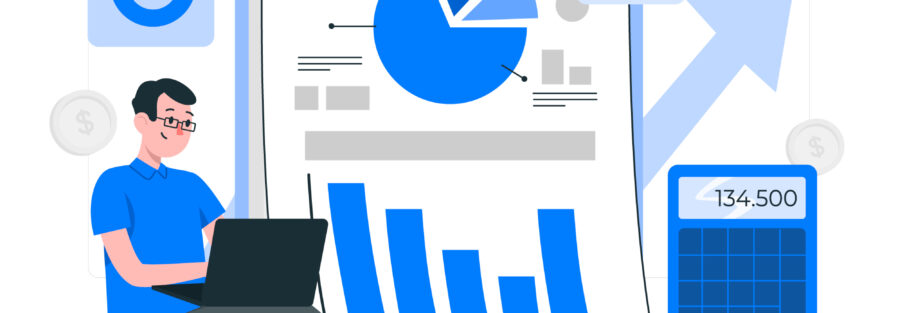Backdrop
As India stands on the brink of a transformative economic era, Finance Minister Nirmala Sitharaman unveiled the 2024 Union Budget, marking her record-breaking seventh consecutive budget presentation, and the eleventh by the Narendra Modi administration. That sounds like a stage for a strong foothold of the government and stable policy-making. However, this year’s budget holds a distinctive significance, not only due to its historical context but also because of its unique political backdrop. Unlike previous years, this budget reflects a notable shift influenced by the complexities of coalition politics. With a specific focus on key states like Andhra Pradesh and Bihar, the budget promises targeted investments and strategic announcements aimed at addressing regional disparities and fostering inclusive growth. As the Modi government continued its tenure, the 2024 budget arrived with heightened anticipation, signalling both a continuation of established economic policies and a nuanced response to the evolving political landscape. However, the budget proposals didn’t go down well with a large section of the citizens – at least that’s what social media responses say! But if you are smart enough, you would know that social media isn’t what it used to be. So, we present here the budget again – summarized, simplified and in layman’s terms so that you can deinfluence impressions and declutter opinions yourself, and instead form your intelligent opinion and ponder upon the state of the country and where we are headed. So, “Are you paying taxes like in England and getting services like in Somalia?” is a question that we seek your informed opinion on, instead of answering ourselves. However, there are a few points that we can demystify for you.
High taxes aren’t the real issue
When compared globally, India’s tax rates can seem high, especially in terms of direct tax rates and other indirect taxes combined. However, they are not necessarily out of line with other developing nations. For instance, India’s corporate tax rates have been reduced in recent years to make them more competitive globally and the new tax regime has attempted to ease the pain of lower middle-income groups. Lower-income groups who barely make their living do not need to invest in tax-saving schemes to save taxes under the new tax regime. India’s aim of ‘Vikisit Bharat 2047’ i.e. becoming a developed nation by 2047 would require heavy infrastructure investment and upgrade of public utilities and services. And this money is not going to come out of the thin air. Anybody guesses that the taxpayers have to contribute to it. We know it and as a responsible citizen would love to see our country succeed and be willing to contribute to the nation building. So, paying taxes isn’t the real problem, the issue, on the contrary, is how the taxes are collected and utilised, and their result.
Issue 1 – Tax Laws and Services
Firstly, the tax laws in India are complicated as Governments try to appease different social groups and vote banks. Meanwhile, the super-intelligent Indians who find loopholes, and litigations as a result of the same, have further complicated the tax laws. As a result, honest taxpayers end up facing far more hassles while paying taxes. People would prefer a simple tax structure and hassle-free experience of paying taxes any day even if it means paying slightly higher taxes. Tax payment should be simple and there should be some direct incentive to pay tax, and not fear-mongering over not paying taxes. Heck, even the temples put up the names of their biggest donors and allow special Poojas to such devotees – it is the whole experience that allows them to pay out of love and not fear. Meanwhile, Indian taxpayers have to face scrutiny even after paying taxes while people sitting next to them who haven’t paid taxes are relaxed and never had any encounter with tax departments. Take GST or TDS for example – businesses work as free tax collection agents of the Government and the efficiency with which this is carried out is a fact that has never been appreciated. The Tax Department should act like a service provider rather than a collection agent – that’s when the honest taxpayers will start ‘contributing through taxes’ instead of ‘getting rid of hassles’. ITD needs a perception makeover!
Issue 2 – Utilisation of Taxes
Then, there is an issue with the Government’s utilisation of the funds. If you are listening to the Budget Speech in excitement and not from the state of Andhra Pradesh or Bihar, you would certainly feel disheartened when you hear the allocations being made to a few states. Sure, other states would have received allocations for their projects and didn’t get mentioned in the budget, however, that still doesn’t explain the special mention to a few states, or actually, it does explain a lot about the current state of the government behind the curtains. The Finance Minister is well-known to skip announcing the devils in the budget speech which are later discovered in budget papers e.g. Indexation benefit this year. The Finance Minister could have easily skipped special mentions to ‘Kingmaker’ states, however, clearly, she mentioned because she had to, and not because she wanted to. Such announcements distort the perception of the public and the taxpayers forever – people have accepted the fact that this is going to happen if there is a coalition government. This is only one example amongst many others. Government policy announcements often categorize the whole nation into different groups where some get more benefits while many others feel left out of the budget. While the defence budget keeps increasing each year, the decline in the share of the education budget is disheartening – our borders might be safer, but illiteracy and unemployment are making it unsafe to live inside them. The disparity between the budget allocations and how the government prioritizes even the less deserving sectors over more pressing issues is depressing for an honest taxpayer.
Issue 3 – End Result of Taxes
Even if the government simplifies the tax laws, improves its services and allocates the funds more fairly, there is still one major roadblock that is hard to overcome – the end outcome. It is no secret that the Indian governance system is full of corruption and that there is a rampant misuse of tax money. Government advertisements are more prominent and well-built than the bridges connecting the towns. Even if funds are allocated for certain projects, the end outcome that we see from the project doesn’t justify the budget for the same. Let’s start with a small project like the New Income Tax Portal – aimed at improving tax services and fair utilisation of taxpayers’ money – two boxes checked – the third one? The government paid a staggering 164.50 crore between 2019 and 2021, to Infosys, to build this ‘modern, state of the art, technologically advanced and user-friendly’ portal which has made ITR filing ‘quick, easy and hassle-free’ – if you know, you know! We don’t know whom to blame – The government or Infosys, but certainly there is one question that needs to be answered – “Why does this happen with Public Projects only?” It is not like Infosys is an inefficient company or not capable of doing better. The seriousness with which public money is handled in India is quite low. Unless the governance system starts valuing public money, the honest taxpayer is never going to get the value back for the taxes paid and this results in questioning the whole point of paying taxes.
Issue 4 – Milking the Taxpayers
In 2012-13, 1.25 crore non-zero tax returns were filed which resulted in personal tax collection of 2 lakh crore. By 2022-23, the number of non-zero tax returns has increased 1.8 times to 2.24 crore. However, the tax collection has increased 4 times to 8.34 lakh crore. The government is filling its coffers with existing taxpayers, instead of expanding its base to cover more citizens. Even after having a majority in the parliament and a stable government for the last ten years, the Government has failed to widen its tax base. Honest taxpayers end up paying more taxes as taxes are increased or exemptions are withdrawn, taking the burden of direct taxes upon themselves, while certain groups continue to enjoy tax-free status or special exemptions. On the other hand, India’s tax system is progressive, with higher rates for higher income brackets. This means that wealthier individuals and businesses pay a higher percentage of their income in taxes, which is intended to address income inequality. For many middle-income earners, however, the perceived tax burden can feel significant, especially when combined with indirect taxes like GST. Meanwhile, wealthier people have access to exclusive ways of saving in taxes through tax policies or fancy tax avoidance methods that result in their wealth growing disproportionate to the real taxes paid. To sum up, the rich aren’t getting taxed fairly, the poor aren’t liable to pay tax and many remain untouched by taxes, and thus, the middle-income class continues to be taxed disproportionately because they are neither rich, nor poor, and not special.

Menu



